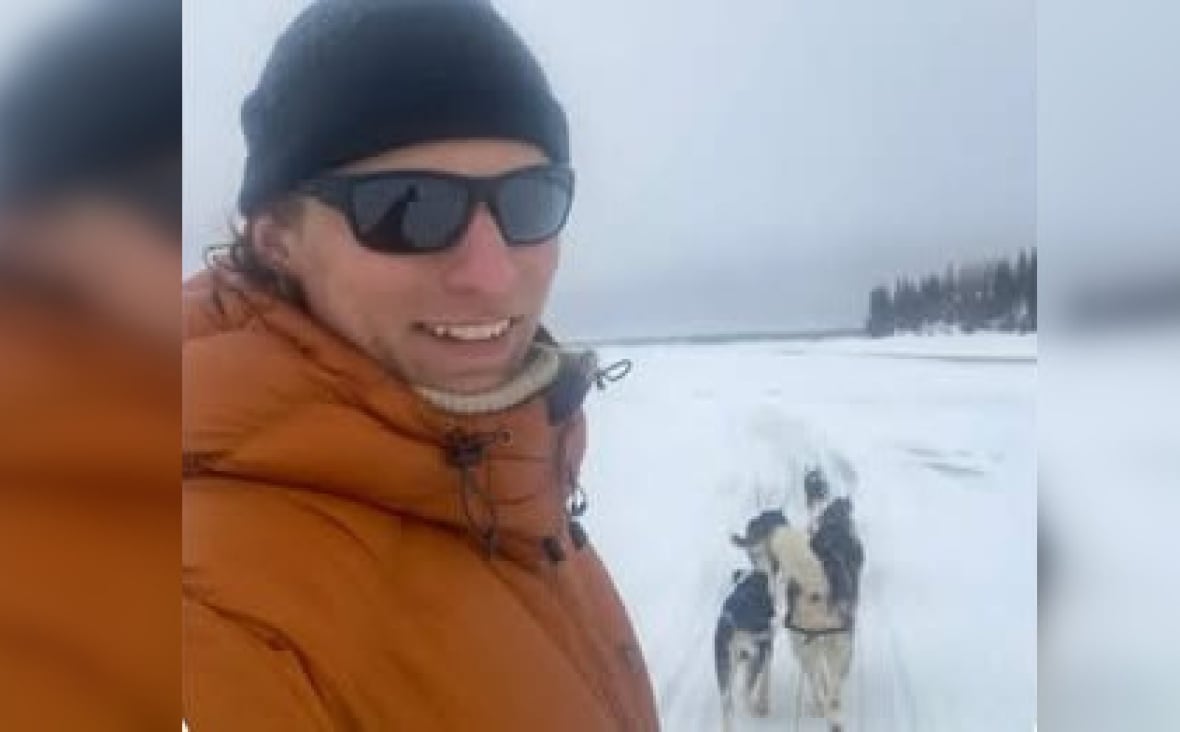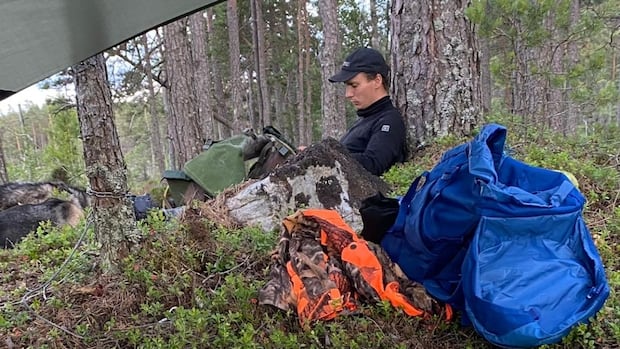Loved ones of Steffen Skjottelvik, a Norwegian trekker who has been missing in northern Manitoba for more than a week, gathered in his home country on Friday to hope for the best, while preparing for the worst, as the outlook for finding the 29-year-old alive in the remote coastal wilderness worsens.
About 100 relatives, friends and community members attended a service at Holmsbu kirke church, just outside of Oslo, on Friday night “to gather in hope” for Skjottelvik, said Christian Dyresen.
“The fact that the police have now confirmed that [his] backpack and gear has been in water for some time gives the family, sadly, the realization that there is little hope,” Dyresen, a Skjottelvik family spokesperson, told CBC News.
“But … they cling to the hope and they are doing what they can to ensure that the search is going on,” he said, speaking from outside the church. “Whatever it takes, they are focusing on finding Steffen.”
Skjottelvik, who RCMP have called an experienced wilderness traveller in Norway, started his trek from Fort Severn, Ont., about 1,500 kilometres northwest of Toronto by air, on July 25 and was expected to arrive in York Landing, Man., about 850 kilometres northeast of Winnipeg, on Aug. 15.
Skjottelvik set out to travel from James Bay to Alaska in a trek documented on Facebook called Steffen’s Great Canadian Journey. His uncle, Lars Jorgen Sorensen, has said Skjottelvik prepared for years for this trip.
On Thursday, RCMP informed the family they found Skjottelvik’s backpack and rifle near the Hayes River, which flows through a treacherous, soggy, muskeg landscape. RCMP have said the river is one of the fastest in Canada, and that water levels can dramatically shift four metres in depth between low and high tide.
RCMP have since released a statement to Norwegian press that the backpack has been in water “probably for a long time,” Dyresen said.
That finding, paired with GPS coordinates RCMP obtained a few days ago placing Skjottelvik near the Hayes the day he was last heard from, have family coming to grips with the mounting evidence suggesting he may have perished.
Dyresen said the family was also informed the searchers on the ground in the York Factor area, primarily volunteers from Fort Severn First Nation in northern Ontario, and Gillam and other Manitoba communities, were back at it again early Friday morning.
“It’s mostly the locals and the volunteers who are doing the search in cooperation with … police,” said Dyresen.
“[Family] understand the realism of the fact that the backpack has been found close to water and probably also been in the water for some time, and that it’s probably little hope now to find Steffen alive,” he said. “But it is still hope.”
Various campaigns to raise money for the search effort continue in Norway and Manitoba.

Steffen Skjottelvik is seen in an undated Facebook image. He left Fort Severn, Ont., on foot on July 25 with his two dogs and the intention to arrive in York Factory, Man., on Aug. 15, but never made it there. (Steffen Skjottelvik/Facebook)
Dyresen has said Skjottelvik drew inspirations from two popular Norwegian wildlife experts who have documented their travels through Alaska, Canada and beyond.
Skjottelvik spent time in Fort Severn First Nation before heading out on his trek, destined for York Factory, 300 kilometres away. Before leaving, he designated someone from Fort Severn as his emergency contact who has been among those on the ground leading searches for him.
The terrain between the two northern communities is dominated by soupy bogs that are challenging to cross on foot, and also fall within polar bear and wolf habitat.
Skjottelvik was planning to arrive in York Factory a week ago today.
He checked in the day before he went missing, suggesting he had been separated from one of his two dogs in a wolf attack, RCMP have said previously. Someone from Fort Severn posted photos on Facebook of a skinny-looking husky resembling one of Skjottelvik’s, saying it had wandered into the community on Monday.
RCMP sent one officer to the area Monday to look for signs of Skjottelvik using a thermal imaging drone to complement search efforts, largely by northerners, as well as Manitoba Conservation officials.
Manitoba RCMP Sgt. Paul Manaigre said Wednesday the federal police agency hoped to send more resources north.
CBC News has requested an update from Fort Severn First Nation’s Chief Matthew Kakekaspan and Manitoba RCMP on Friday, but did not immediately hear back.
